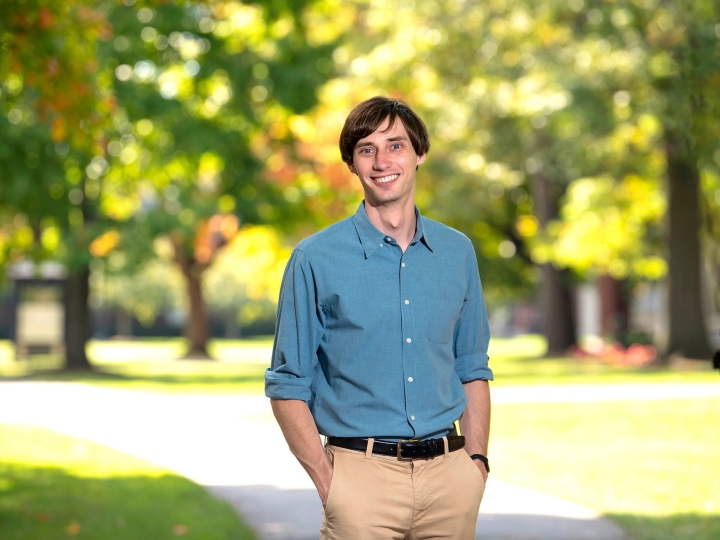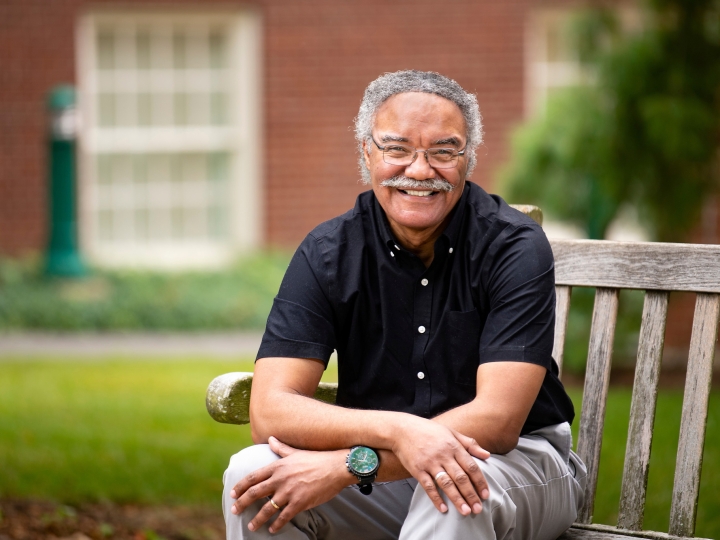
Thomas Kinnaman, Economics
September 1, 2018
Economists are forever interested in measuring those things that at first appear unmeasurable.
Professor Thomas Kinnaman, economics, rides his bicycle to work each day and is a dedicated recycler. But, as an economist whose research focuses on environmental policy, he isn't afraid to challenge prevailing beliefs about environmental issues and policies, even if the data contradicts popular pro-environmental opinion.
"Data always wins," Kinnaman says, pointing to one of his studies, which found that the socially optimal recycling rate, which maximizes economic and environmental benefits, hovers at just around 19 percent, when countries and communities are increasingly aiming for the goal of zero waste.
"That result surprised me," he says. "And that's what I love about economics. You can approach big questions and find answers not from an ideological basis but by examining the data."
Having your assumptions overturned can be a good thing, he notes. "It’s humbling and refreshing to undertake a research project, thinking you might have the answers, only to have the data take you in a completely different direction."
Kinnaman, whose research also upended a longstanding belief that resource-rich nations are "cursed" with poverty and lack of development, adds that his desire to teach preceded his fascination with economics. He traces his interest in teaching back to his teens, when he worked entry-level jobs and was often tasked with training new hires, including a fast-food worker who was unable to read.
"I had to dig in to figure out how this person, who faced different challenges, could be taught to do the job," he says. "I was only 16, but that rewarding experience put the teaching bug in me."
As a professor, Kinnaman continues to look for effective ways to impart complex information to students while also challenging them to seek their own answers, whether that entails tackling out-of-class assignments or participating in collaborative research.
"In the classroom, I try to develop students into self-learners rather than mere consumers of processed and spoon-fed information," he says. "It’s rewarding when students figure out something on their own. Then they own it. It can be quite transformative for students to participate in the creation of their own knowledge."

